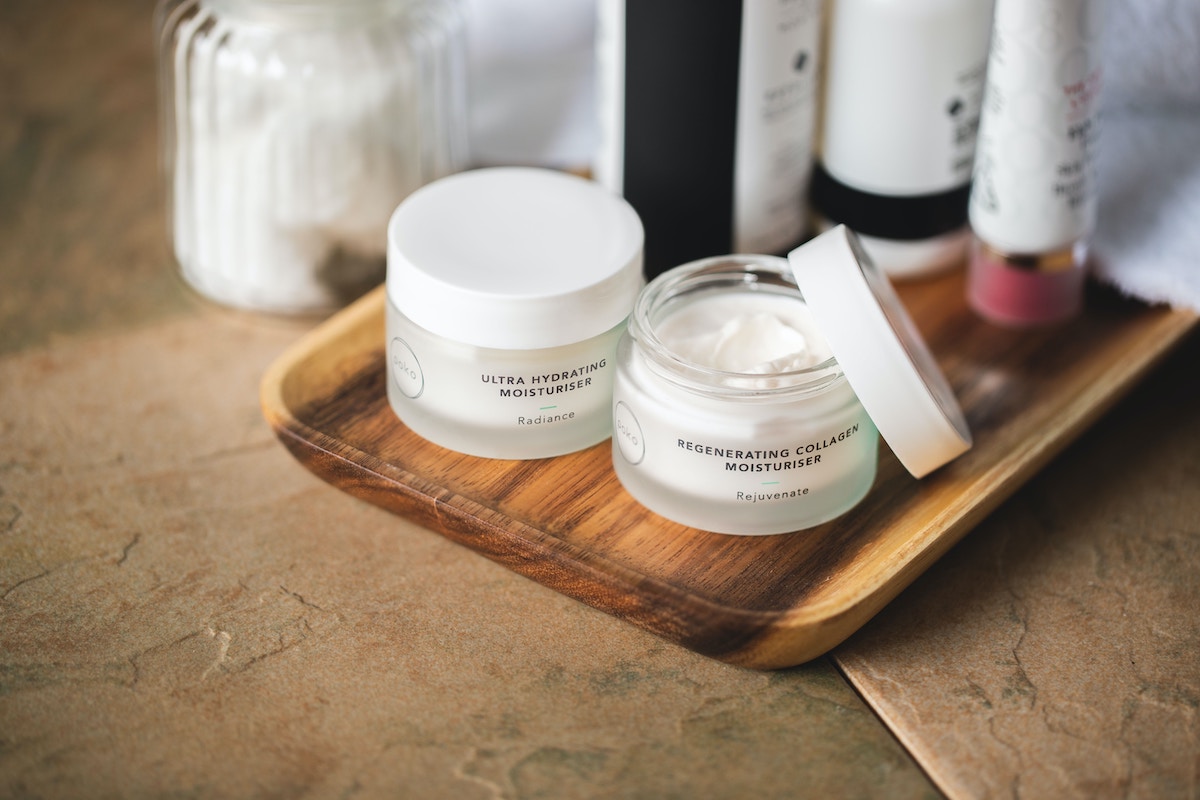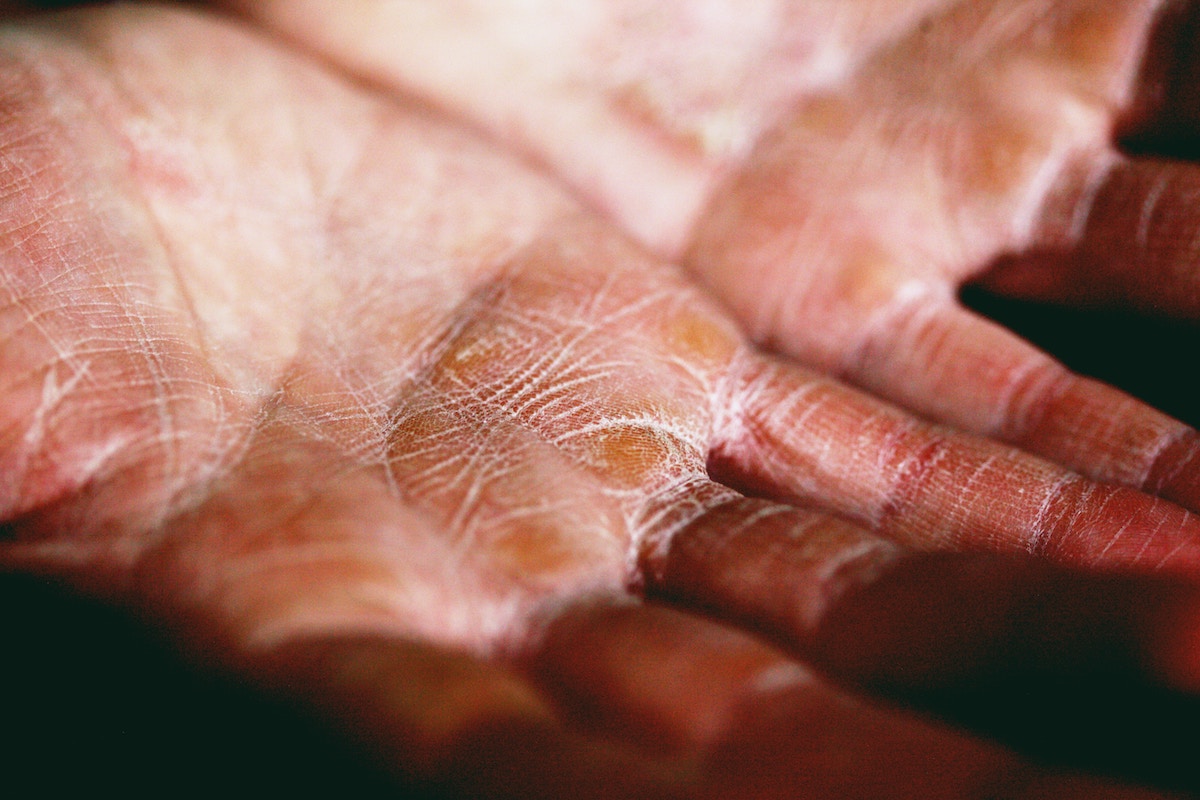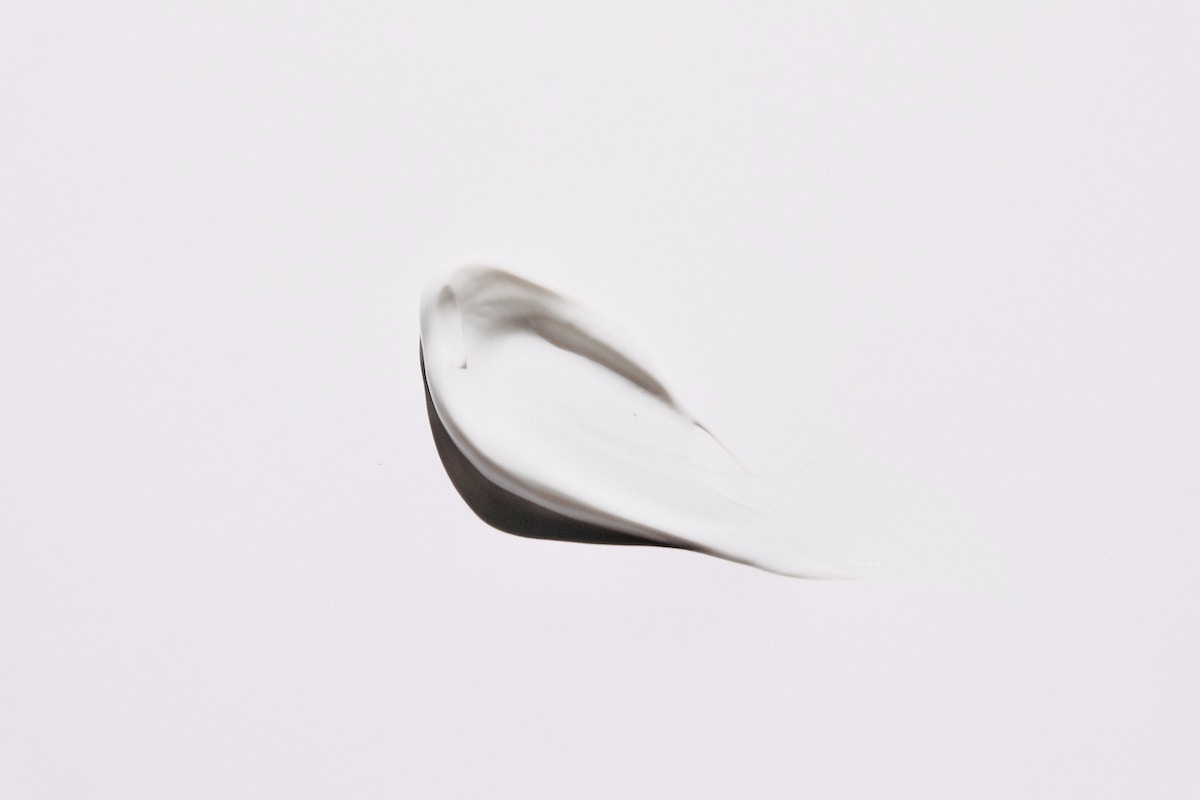
Navigating the skincare space can feel complicated enough. Buzzy products and hard-to-pronounce ingredients can make finding options that work for your skin type and preferences feel like a tall task. Add social media influencers, and what was once a process that involved soap and water has turned into an all-out adventure.
However, the adventure may be one you want to take — skin care is part of a grooming routine that can have you looking and feeling your best. What if you are also grappling with a skin condition like eczema?
Let’s back up for a moment. What is eczema, anyway? You may have seen it in ads or eczema creams that promise to nix the condition.
“Eczema is also known as atopic dermatitis,” said Anna Chacon, M.D., a dermatologist at MyPsoriasisTeam.com. In layperson’s terms, Dr. Chacon explains that eczema causes side effects like red, itchy, and inflamed skin.
What causes eczema? Is there an eczema treatment that works? Is it an eczema rash or something else? A pair of dermatologists answered these questions and advised on how you can look great, eczema be darned.

Eczema fast facts
Understanding how to spot an eczema rash and what triggers flare-ups can help you help yourself (or seek advice from a dermatologist).
What does eczema look like?
An eczema rash may present like dry skin. However, there are differences. For instance, the American Academy of Dermatology notes hand eczema and dry skin are different in that the former can lead to:
- Irritated skin that may be red, dark brown, purple, or gray
- Inflamed, scaly skin
- Itchiness, sometimes in the form of blisters
- Burning
- Deep and painful cracks
- Pus
- Crusts
- Pain
- Bleeding
What is the main cause of eczema?
One of the frustrating parts for people looking to avoid eczema flare-ups — particularly before the photographer at work comes to take headshots — is that scientists have yet to answer this question definitively.
“There is no main cause, unfortunately, that is known for eczema, but we do know that it is the result of an overactive immune system that causes your skin’s barrier to become dry and itchy,” said Harold Lancer, MD, FAAD, a board-certified dermatologist with Lancer Skincare.
Dr. Chacon notes other factors can increase a person’s chances of having eczema.
“It is also believed to be related to genetic factors, as eczema often occurs in families with a history of allergies or asthma,” Dr. Chacon said. “Environmental factors, such as irritants, allergens, stress, and weather changes, can also trigger eczema.”
One cause we can rule out is person-to-person spread. Dr. Chacon explained that the answer to the question, “Is eczema contagious?” is no.

Eczema treatment: Short and long-term skincare solutions
Maybe you’re experiencing an eczema flare-up at the worst time (pal’s wedding, anyone?). Perhaps you want to get rid of the condition once and for all. Dermatologists field these questions daily and offer lifestyle and grooming advice for men with eczema.
How can I get rid of eczema?
Another frustrating answer: You can’t.
“There is no cure for eczema, but there are a variety of treatments individuals can turn to,” Dr. Lancer said.
Dr. Lancer added that age and the severity of your eczema will factor into eczema treatment. For example, a person with a mild hand eczema flare-up may be able to get by with an over-the-counter cream. On the other hand, someone experiencing a more severe one might do best with a prescription-strength topical eczema cream.
Dermatologists say that common eczema treatments include:
- Moisturize regularly. Dr. Chacon suggests using a high-oil-content moisturizer once or twice daily. Dr. Chacon recommends applying the moisturizer after a bath or shower once you’ve patted the skin dry gently.
- Avoid triggers. Dr. Chacon says that soaps and detergents (especially ones with fragrances), fabrics like wool, dust mites, pet dander, pollen, mold, and foods can trigger eczema.
- Manage stress. Stress is another trigger, Dr. Chacon explained. Think of stress management methods like meditation, setting boundaries, or therapy.
- Medications. Sometimes, medication is a better bet than a drugstore eczema cream. “Topical corticosteroid creams or ointments, calcineurin inhibitors, and PDE4 inhibitors are some of the medications used to control eczema,” Dr. Chacon said. “Oral antihistamines can also help with itching. In severe cases, systemic medications may be prescribed.”
- Healthy lifestyle. Regular exercise, a healthy diet, and quality sleep can aid in reducing eczema flare-ups, Dr. Chacon noted.
What foods trigger eczema flare-ups?
Several, and some may surprise you. Dr. Lancer said the most common food-related eczema triggers are:
- Peanuts
- Dairy
- Wheat
- Fish
- Eggs
Dr. Chacon added that processed foods are also common culprits. However, she stresses the importance of speaking to a provider before cutting items from a diet.
“It’s recommended to consult with a healthcare provider before making significant dietary changes, especially if the person with eczema is a child,” Dr. Chacon said. “An allergy test might be helpful to discover any specific food allergies that might be contributing to eczema flare-ups.”
How can I cover up an eczema flare-up fast?
This advice is also best left to a dermatologist — and they will likely tell you to let the flare-up run its course.
“I advise to proceed with caution when trying to cover up an area with a flare-up,” Dr. Lancer said. “Makeup can irritate the skin, so I suggest not covering it up but rather letting the skin heal.”
Not the answer you sought when you double-clicked on this article?
“If you absolutely have to cover it, then I suggest a mineral-based type of cosmetic, which is generally less irritating to the skin,” Dr. Lancer said.
Editors' Recommendations
- Make shopping easy: The best gifts for men (no matter what he’s into)
- The best nighttime skincare routine for men, according to experts
- Body butter: Is this the secret winter skincare solution you’re not considering?
- Did you know you can change face shapes without surgery? Here’s how
- The 14 best men’s face moisturizers with SPF to slow down aging




